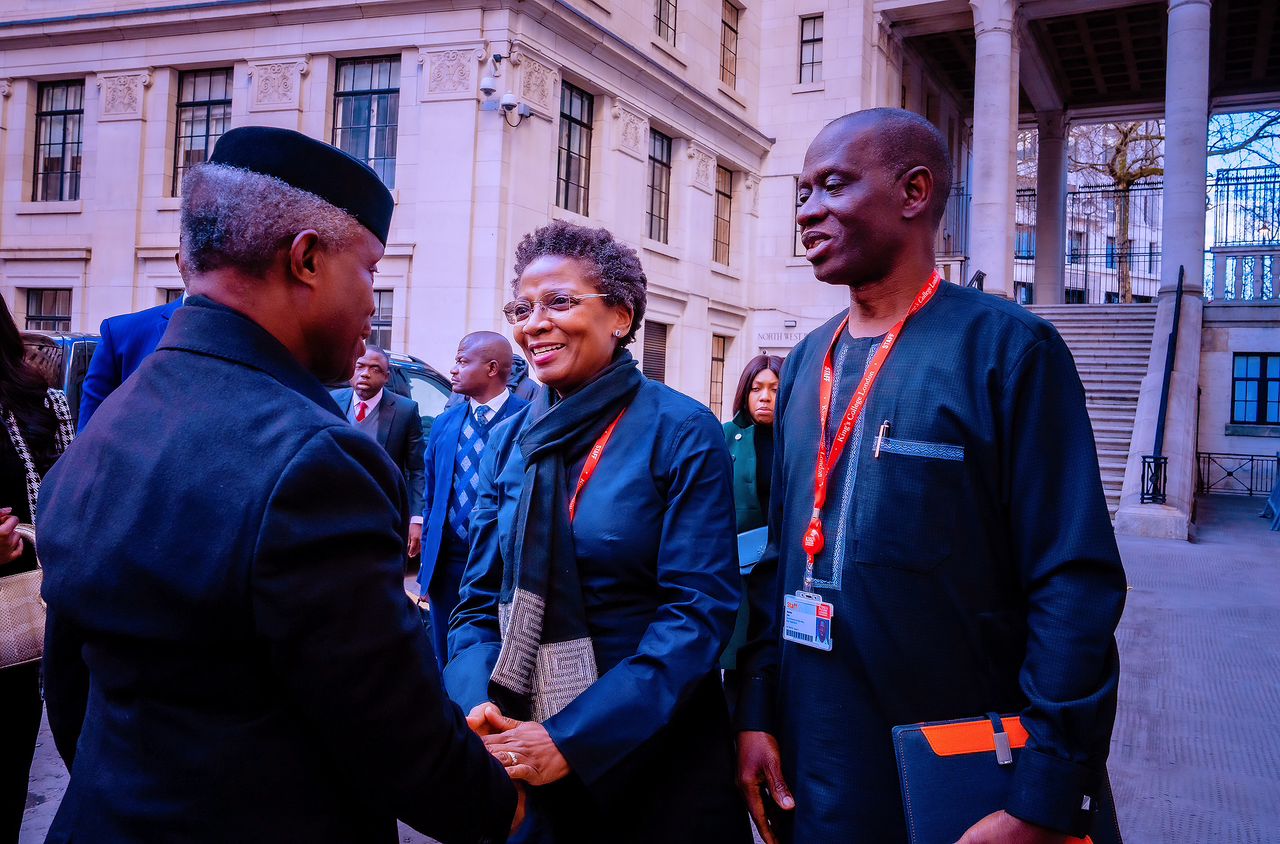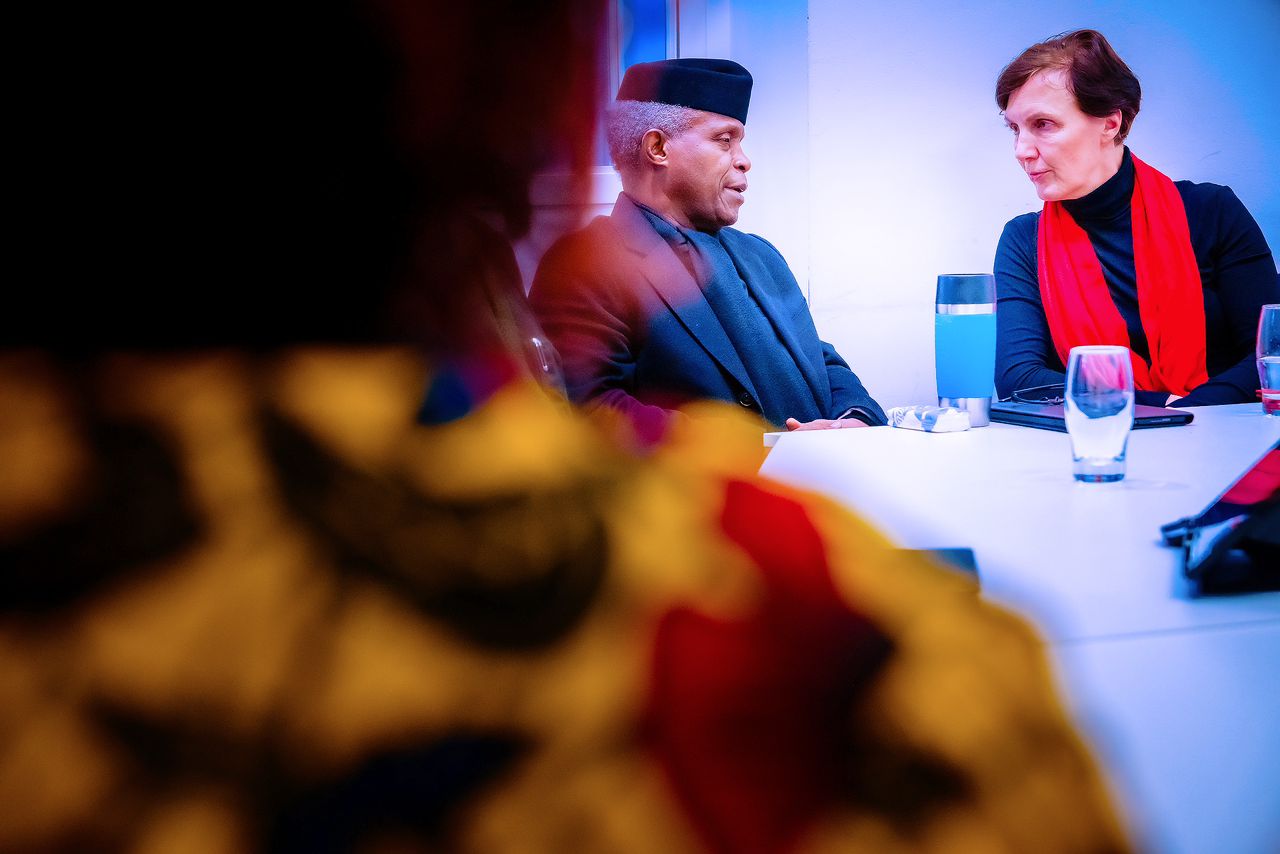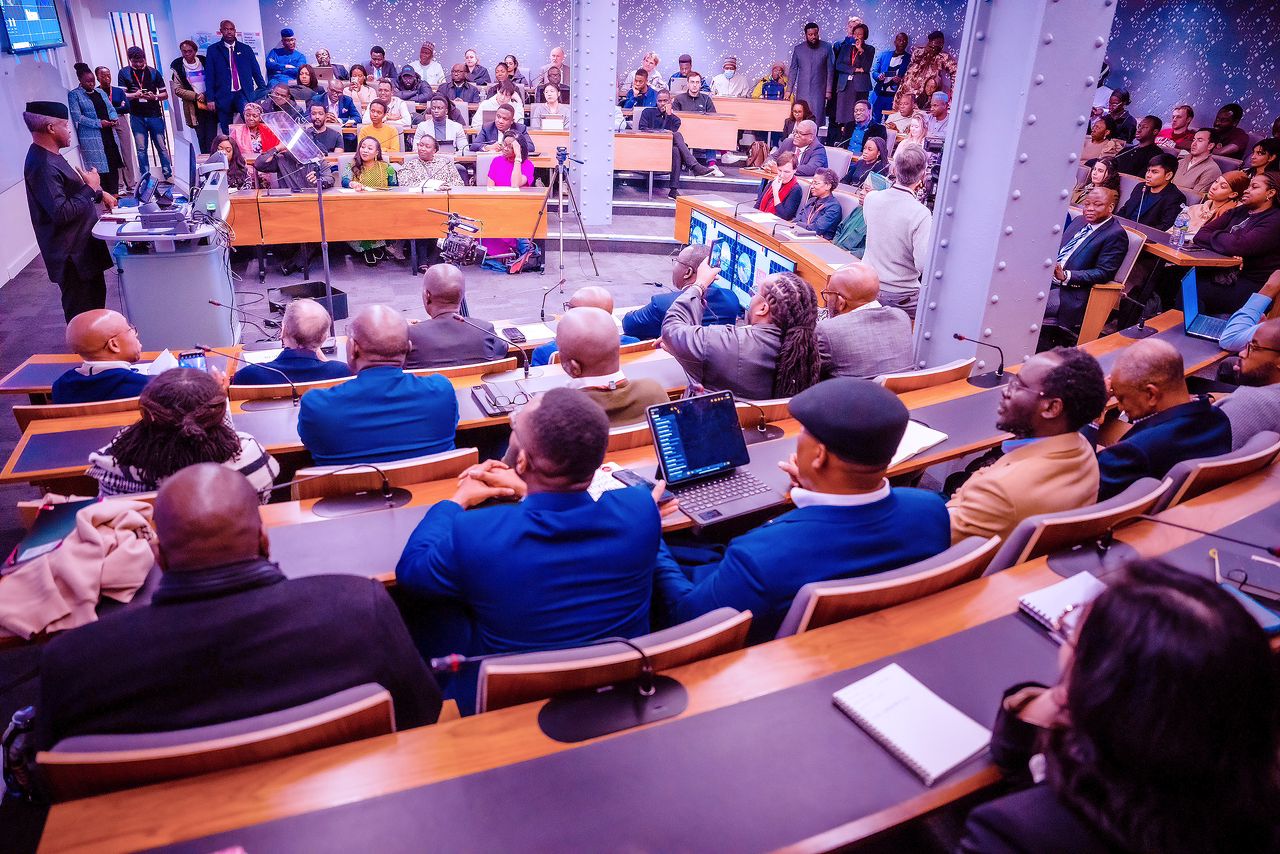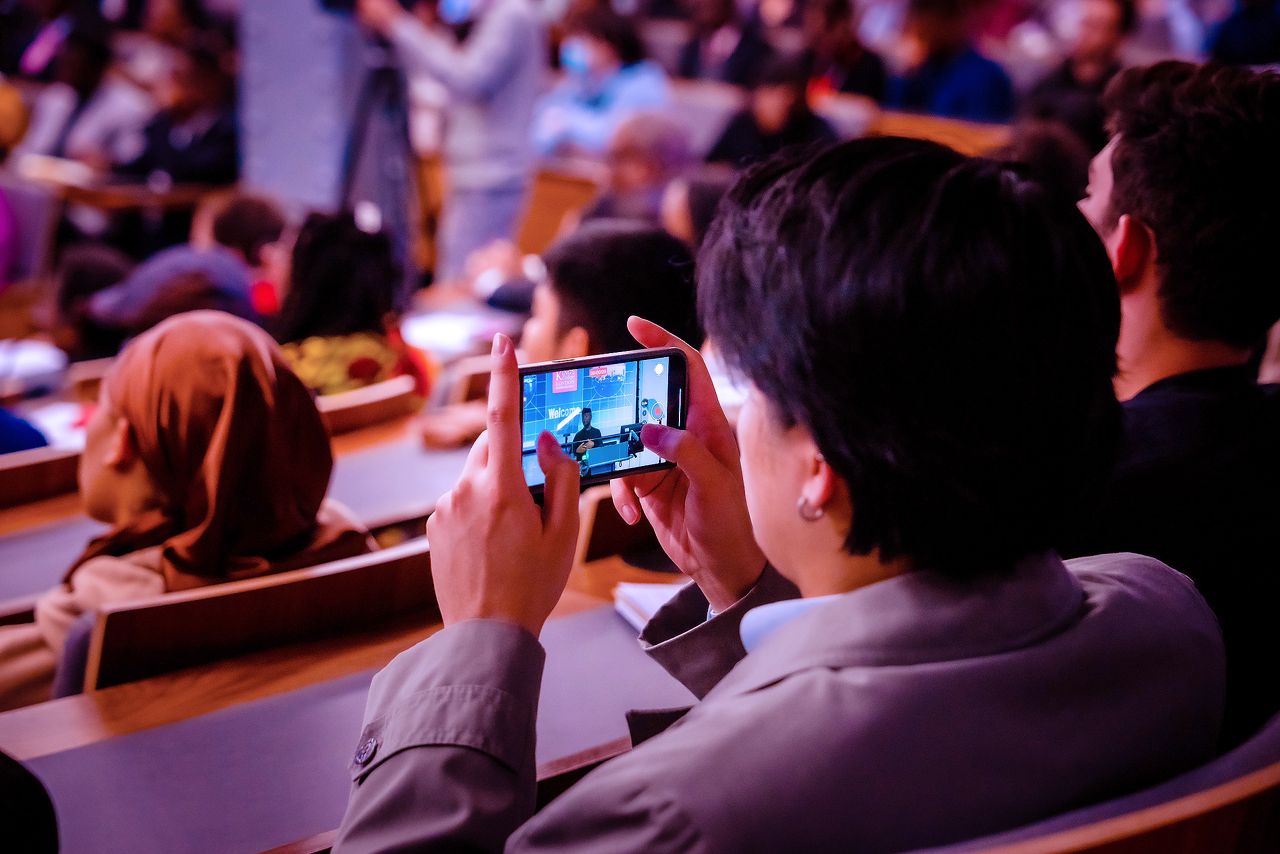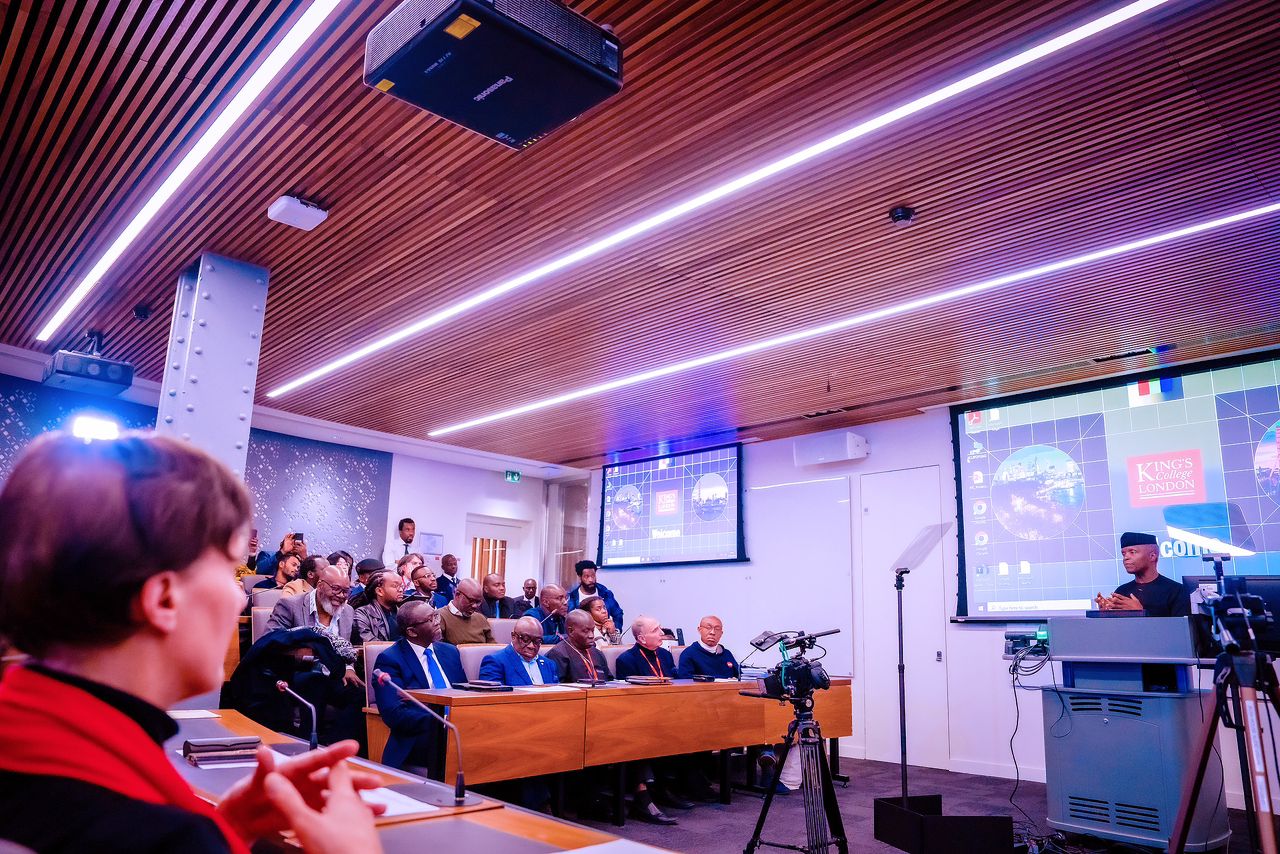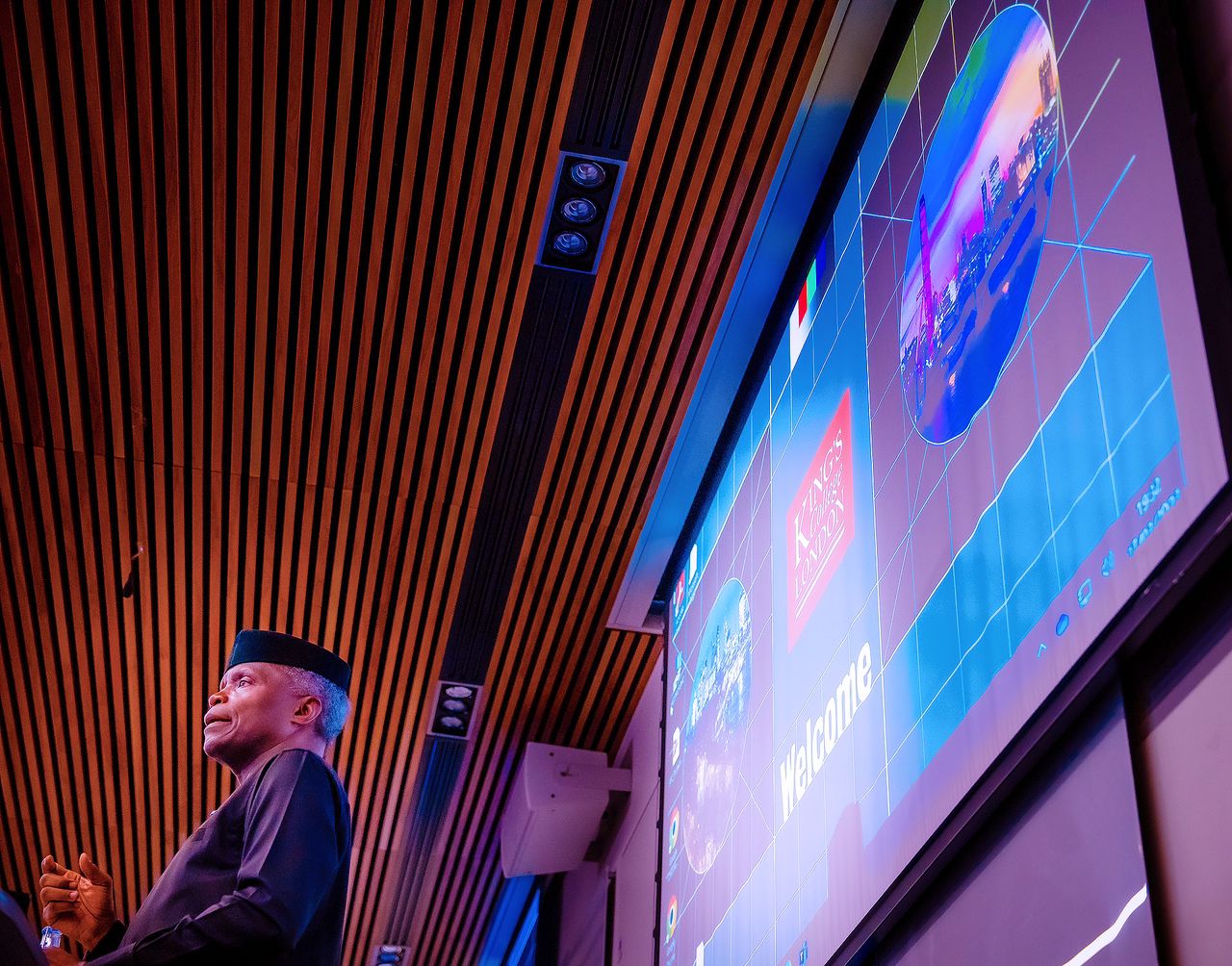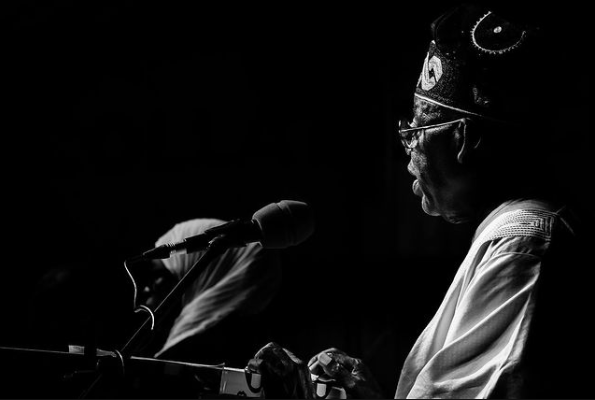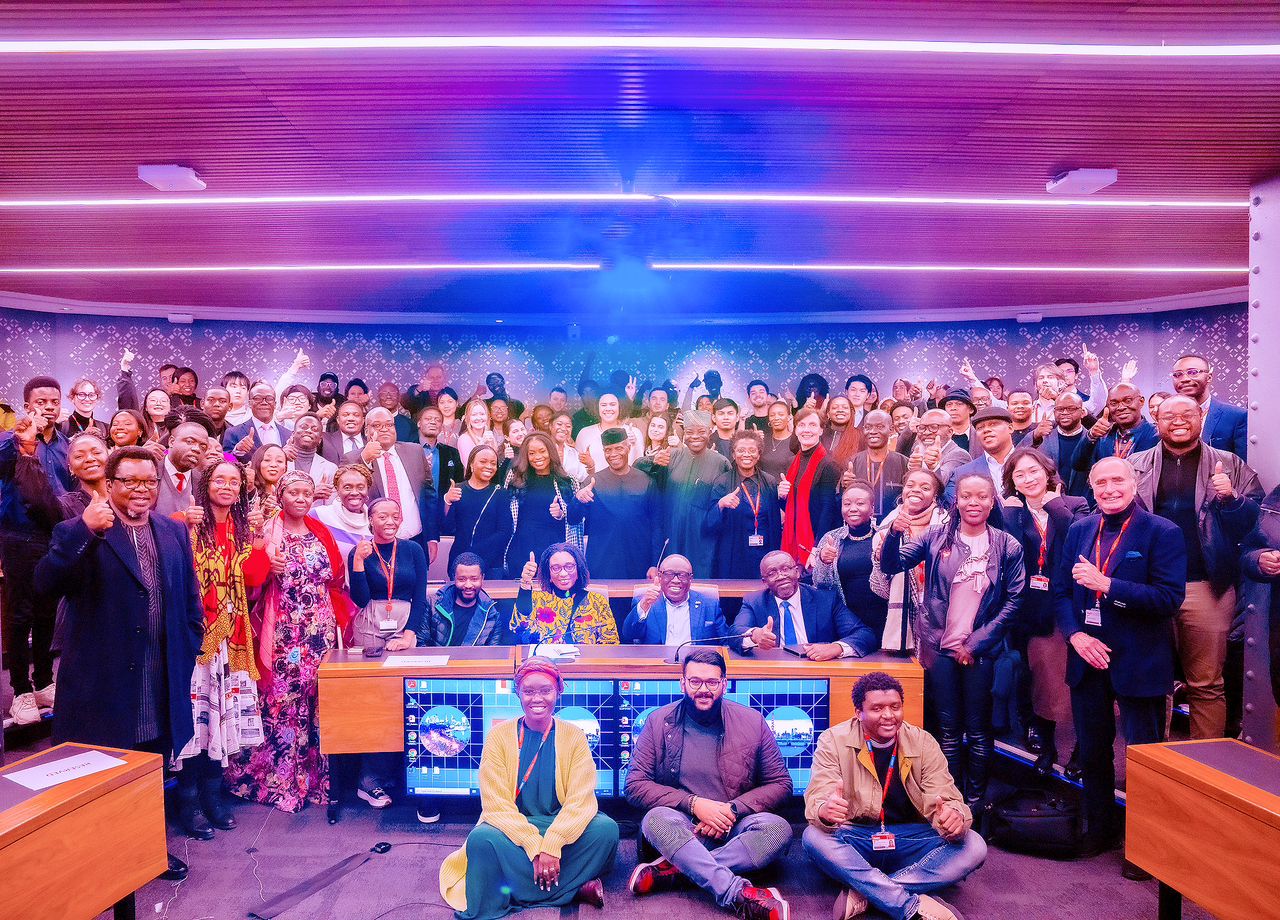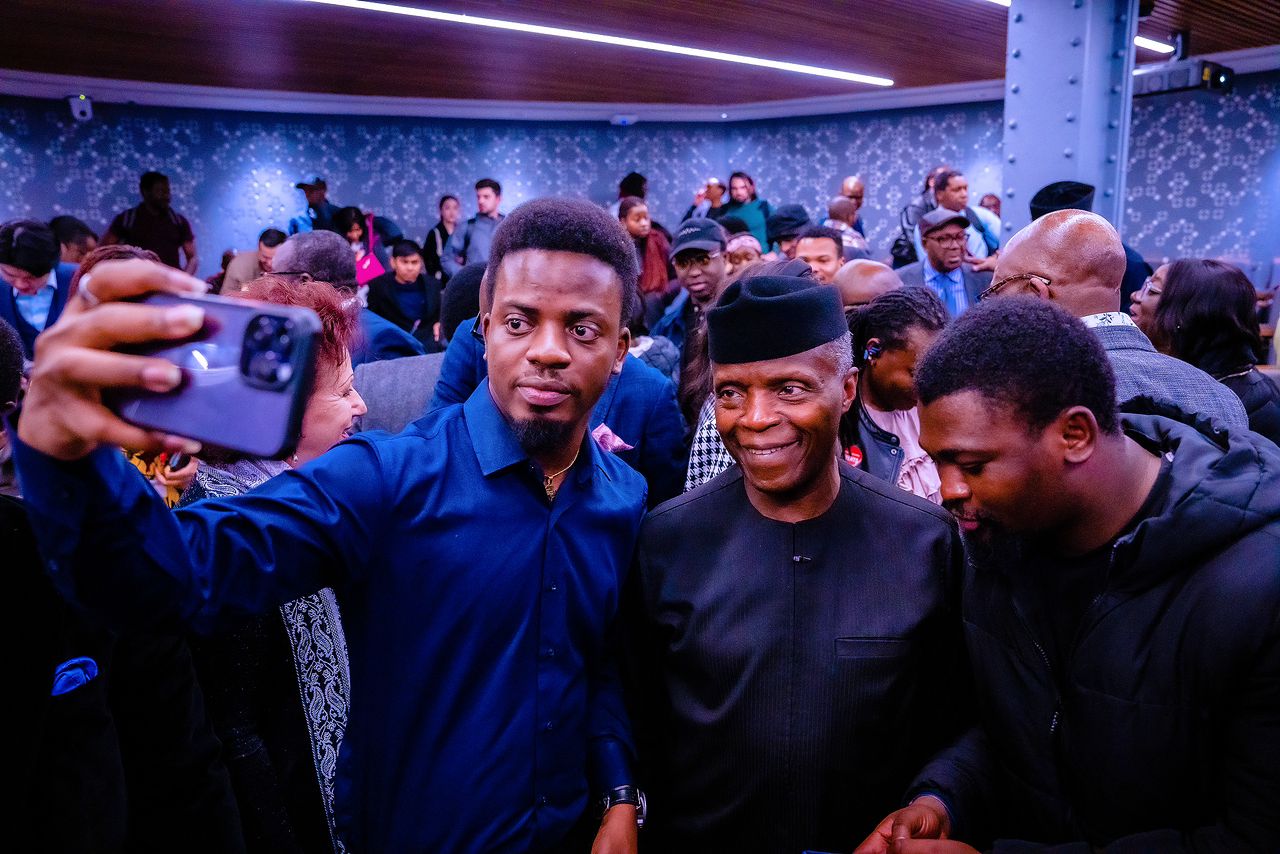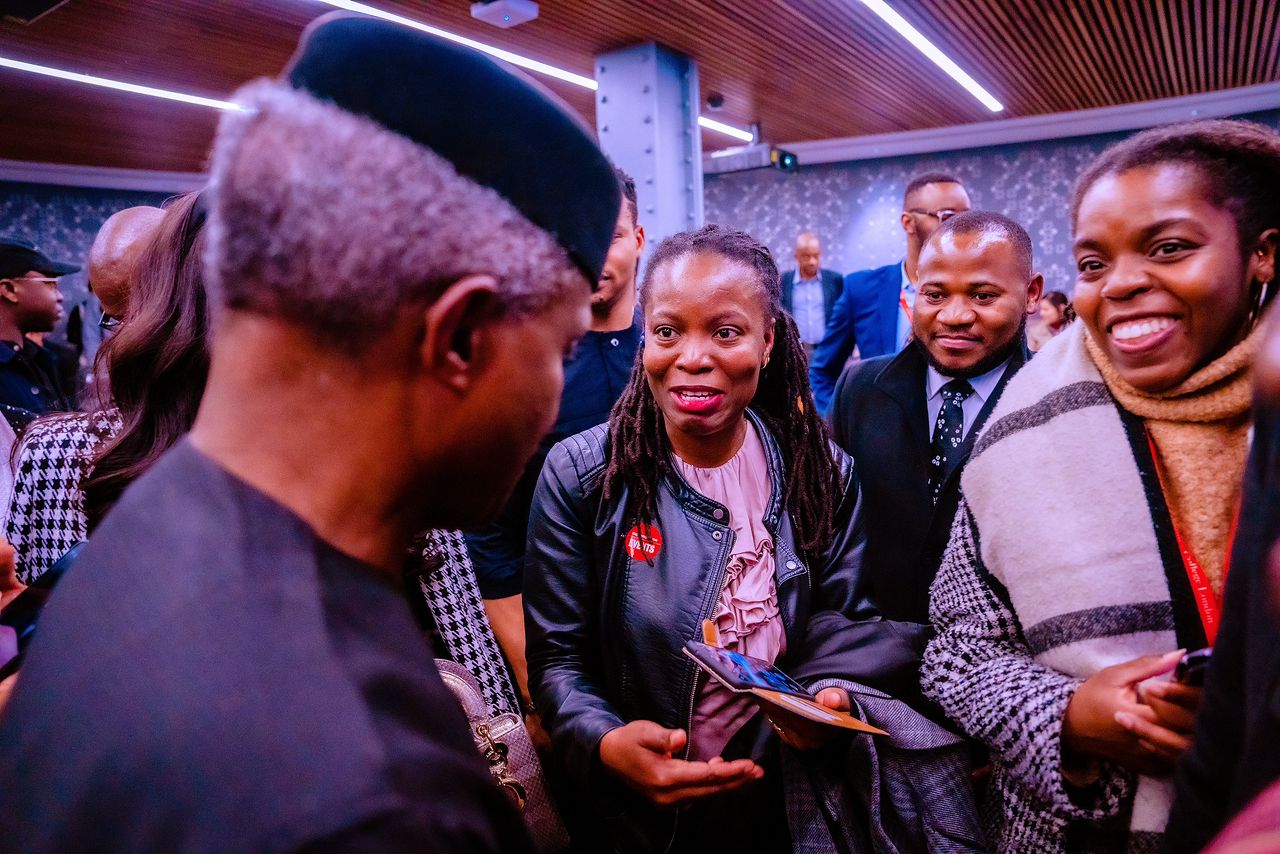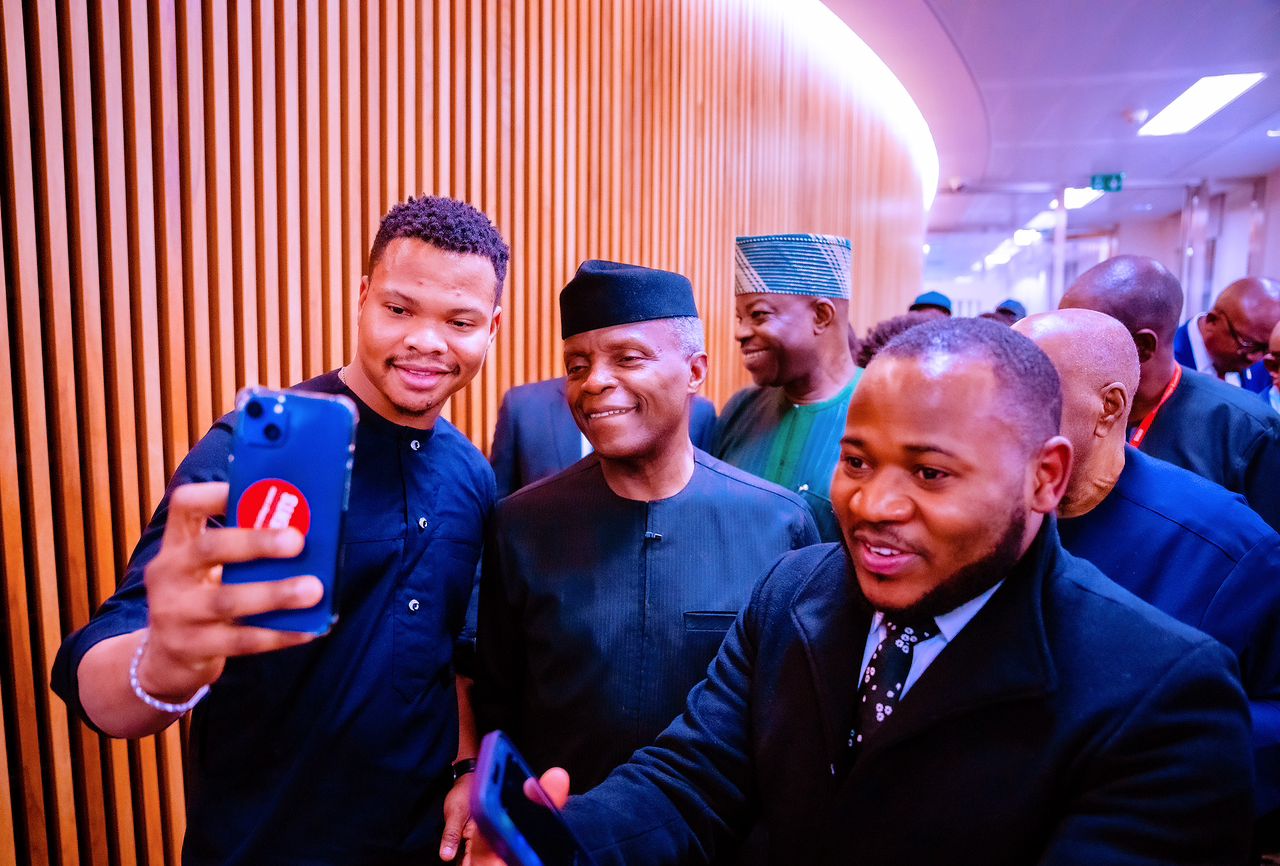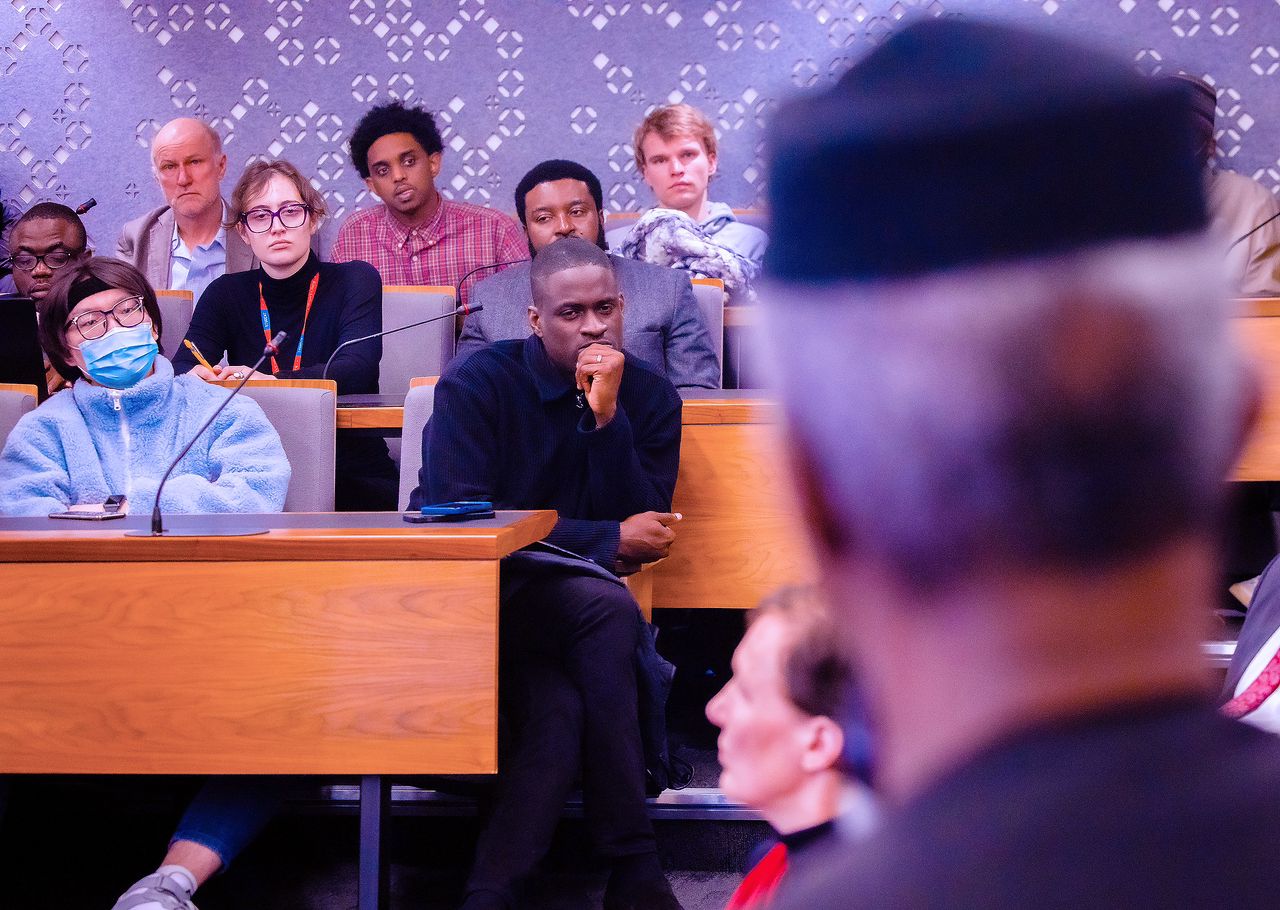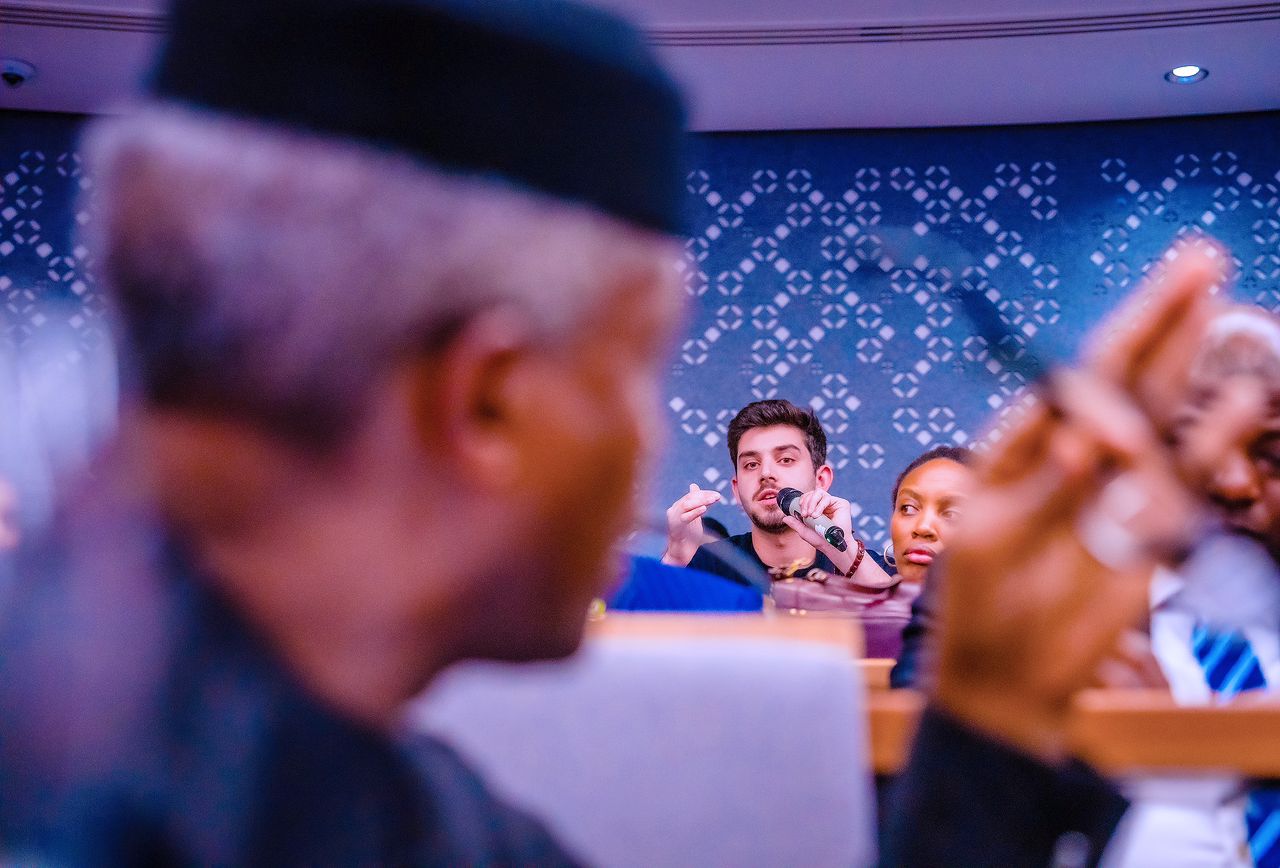“Africa Can Prosper In An Increasingly Complex World” – Lecture Delivered At King’s College, London
PUBLIC LECTURE DELIVERED BY HIS EXCELLENCY, PROF. YEMI OSINBAJO, SAN, GCON, VICE PRESIDENT OF THE FEDERAL REPUBLIC OF NIGERIA AT THE AFRICAN LEADERSHIP CENTER AT KING’S COLLEGE, LONDON ENTITLED “AFRICA CAN PROSPER IN AN INCREASINGLY COMPLEX WORLD” ON THE 27TH OF MARCH, 2023
PROTOCOLS
It is such a pleasure to be here at King’s College and at the Africa Leadership Centre. Being here is somewhat nostalgic for me. I was a student at the London School of Economics many years ago, and looking around at the so many young faces here, I am embarrassed to say how many years ago that was.
But I am also a professor and so I’m happy to be in an academic environment, especially after the utter madness of politics. So, I must thank the Management of the Africa Leadership Centre for the kind invitation to be here.
King’s College London is to be commended for its contribution to training an outstanding set of leaders in Africa and especially Nigeria over the years. Of course, so many who are here now, including Prof Funmi Olonisakin. Prof. Kenneth Onwuka Dike, a distinguished historian and the first indigenous Vice-Chancellor of Nigeria’s first university, the University of Ibadan, is an alumnus of King’s College.
We also have Chief Mrs. Kofoworola Pratt, founder of the first school of nursing in Nigeria at University College Hospital, Ibadan also studied here. Mrs Pratt was the recipient of the Florence Nightingale Medal from the International Committee of the Red Cross.
The doctor in our team, Dr. Nicholas Audifferen who is here as part of my delegation is also an alumnus of King’s College London and he never lets us forget about it. Some of us have cautioned him to no avail that just having been here does not make him Desmond Tutu.
I also think that we would all agree that the Africa Leadership Centre deserves commendation for how it has in a few short years of its establishment, gained a stellar reputation for research and teaching on leadership studies focusing on the African continent and training a generation of scholars and practitioners on issues of peace, security and international development.
I know that the theme of King’s Africa Week 2023 was “Changing Africa in a Shifting Global Landscape,” so I will tailor my remarks this evening to this broad theme, while also seeking to answer the question of how Africa can prosper in this shifting global landscape.
I think that a point on which there will be no reasonable dispute is that we live in a complex and somewhat confusing time. The lines have never been more blurred in the various conceptual prisms through which we view the world. The existence of several centres of political and economic power since the unipolar world of the 1990s has meant that there are various ways in which global developments are viewed.
In addition to the United States, we now have China, Russia, the European Union, the UK, India and Brazil as dominant regional powers. The perspectives, decisions and actions of these actors impact not only their regions but across the world, including in multilateral forums all across the world.
THE RUSSIAN-UKRAINIAN WAR
So, let’s consider the ongoing Russia-Ukraine war, and how it has impacted Africa and the world. Apart from its consequences for international peace and security, the war has signalled a breakdown of the global order which emerged at the end of the Second World War and is a source of concern to many African countries who now have to steer their way delicately between major powers.
But the more immediate and consequential fallouts of the war are the sharp hikes in food, especially wheat, sunflower oil, rice and maize and then fuel and fertilizer prices. Many African countries are heavily dependent on one or both of the warring parties for food and oil.
When the conflict began in February last year, the price of wheat increased by 67% from December 2021. Oil prices similarly went through the roof. The international price of oil averaged $100 per barrel in 2022 as compared to about $70 per barrel in 2021. Given that some of the key manufacturing countries are oil importers, higher oil prices invariably translated to higher prices for manufactured products as well.
These price shocks and disruption of supply chains of various commodities across Africa led to high inflation at a time when most countries were struggling to overcome the economic and social fallout of the COVID-19 pandemic especially debt and foreign currency crises.
The situation was relieved somewhat by the deal that was brokered to enable the export of Ukrainian wheat. For Nigeria, let me say that despite our strong objection to the invasion of Ukraine as evidenced by our support for the UN resolution condemning the invasion, we have managed to maintain good relationships with both parties.
We are now in the process of working out a grain supply from Russia coordinated by the World Food Programme, and we recently accepted to provide some port space in Port Harcourt, Nigeria for the distribution of grain from Ukraine to other West African countries.
But I think the economic fallout of the war for us in Africa should be an introspective moment on the issue of self-sufficiency in food production.
There is good news here and there about that. Zimbabwe for instance had its highest-ever wheat harvest of 375,000 tons in 2022 and by this increase in production, it achieved self-sufficiency in wheat production. It achieved this feat by increasing land under cultivation, improving fertilizer distribution, ensuring irrigation in the winter months and an active collaboration between the government and private sector.
This means that Zimbabwe is insulated from the sharp increases in global wheat prices or indeed further fallouts from the war in Ukraine.
What this shows is that through proactive measures, African countries can turn this crisis and others into opportunities. It may also be the moment for even bigger ideas that we may reconsider our approach to food production, using climate-smart methods that protect and enhance soil health and resilience. There is work being done by Climate Action Platform for Africa which is an NGO concerned with introducing a different concept on how we could turn some of the problems we have experienced into opportunities in the climate action area.
But a final word on the Russian-Ukraine war. A few days ago, President Lula Dasilva of Brazil proposed a peace club probably led by China to seek ways of ending the crisis. I think that sort of thinking is the way to go. The world must find parties that can be trusted by both sides to intervene. Ultimately, this Russia-Ukraine war would have to end through negotiations. The earlier that starts, the better.
CLIMATE CRISIS
Let me then talk a little about the climate crisis. The climate crisis is central to current global complexities. Just a few days ago, the Intergovernmental Panel on Climate Change (IPCC) released a report cautioning that if speedy actions are not taken, global warming might attain 1.5oC much earlier than expected even possibly in the 2030s.
This is a worrying prospect if we consider that African countries, despite being the lowest emitters of carbon, are the worst hit by its effects and the least capable of quickly responding to or mitigating the damage caused by extreme weather events. At the same time, a competition for increasingly scarce resources such as water and arable land is fuelling conflict and complicating tensions between communities in many parts of Africa, especially the Northern parts.
In our case in Nigeria, we have tensions in the Central and Northern parts of Nigeria with the farmers/herders’ crisis and these deadly conflicts are over arable land and water.
But African countries have a little more to worry about even in the inevitable transition to net zero by 2050 or 2060. For us, energy poverty and its implications for extreme poverty are as existential, as the climate crisis itself.
In 2020, 52% of the population of Sub-Saharan Africa, about 568 million people, had no access to electricity. 19 of the 20 countries with the lowest clean cooking access rates are in Africa.
In practical terms, these energy deficits produce staggering effects. For instance, the clean cooking deficits lead to about huge numbers of premature deaths from household air pollution in Sub-Saharan Africa annually.
Furthermore, gender inequities are exacerbated, and millions of women and children suffer from critical health conditions on account of clean cooking deficits and the use of heavy pollutants like firewood. Due to the electricity deficits, half of the secondary schools and a quarter of the health facilities in Sub-Saharan Africa have no power.
For many gas-rich but energy-poor countries in Africa such as Nigeria, we recognise the role natural gas, being a much cleaner fossil fuel, must play as a transition fuel in the short term to facilitate the establishment of base-load energy capacity and address clean cooking deficits in the form of LPG. But there has been strong resistance to this. We believe, not just because we are gas-rich, but because it is cleaner than fossil fuel, that it must be transition fuel for us. This is because there is no country that has been able to develop industrially using just renewable energy.
Several global North nations have placed restrictions on the use of development funds for natural gas infrastructure in Africa with ripple effects in the private financial sector.
While the U.S. and others have created exceptions in their policies, the intended flexibility is not yet clear or seen in practice. So clearly, limiting the development of domestic gas projects, which is a critical energy transition pathway for Africa in our opinion, violates enshrined principles of equity and justice, and poses dire challenges for African nations, while making an insignificant dent in global emissions.
Even if we triple electricity consumption in African countries, aside from South Africa, solely through the use of natural gas, this would add just 0.6% to global emissions. When we look at this, especially in relation to what can happen to poverty using gas as a transition fuel and the dramatic changes that can happen to lives and livelihoods in sub-Saharan Africa in particular, we think that it is only fair to argue that gas and gas projects ought to continue to be funded by the multilaterals, Europe and the US.
But Africa can also lead a revolutionary approach to climate change. One that recognizes climate action as the job engine for Africa. James Mwangi and his colleagues at the Climate Action Platform for Africa (CAP-A) have presented this compelling point of view.
They argue that instead of pushing the narrative of Africa as a victim and/or insisting on business-as-usual growth which would make Africa a big future emitter, especially as doubling population and possible quintupling of income per capita, could propel Africa to the top of the emitter league tables in the coming decades, Africa should instead lead the way in tackling climate change leveraging on its renewable energy potential, young workforce, green technologies, carbon removal and green manufacturing.
In other words, Africa can provide jobs for millions of its young people, prosper and lead in the fight against climate change by becoming a green or carbon-free civilisation. And we have the comparative advantage to do so.
CHINA AND AFRICA
Let me say a word about China, Africa and the West. In Mid-December last year, the US hosted the Africa-US summit, only the second such, the last was in 2014. There is no question that the summit was meant to at least register America’s interest in being a more active player in Africa in response to the evident dominance of the Chinese.
China is Africa’s largest bilateral trading partner and about $254 billion in trade in 2021. China is the largest provider of foreign direct investment, supporting hundreds of thousands of African jobs. This is roughly double the level of U.S foreign direct investment and China remains by far, the largest lender to African countries.
Chinese companies have also taken the lead in exploiting minerals in Africa, many now in lithium mining in Mali, Ghana, Nigeria, DRC, Zimbabwe and Namibia. Most African countries are in my view, rightly unapologetic about their close ties with China. China shows up where and when the West is reluctant to show up. And many African countries are of the view that the “beware of the Chinese Trojan loans” advice from the West is wise, but probably self-serving.
Africa needs the loans and the infrastructure and China offers them. In any case, the history of loans from Western institutions is not great. The memory of the destructive conditionalities of the Breton Woods loans is still fresh and the debris is everywhere. And the preoccupation of Western governments and media with the so-called China debt trap might well be an overreaction.
I recommend an eye-opening lecture by Professor Deborah Brautigam about two weeks ago at Jesus College Cambridge. The truth as she points out, is that all the Chinese lending to Africa is only 5% of all outstanding public and publicly guaranteed debt in low- and middle-income countries, compared to 23% held by the World Bank and other multilaterals.
Chinese lenders account for 12 per cent of Africa’s private and public external debt and the Chinese have also been there when the debts cannot be paid. In early 2020, as COVID battered African economies, China came together with other G20 members to launch the Debt Service Suspension Initiative (DSSI). 73 low-income economies benefited from the suspension of principal and interest payments. Chinese banks provided 63% of the total debt relief while being only owed 30% of the debt service payments due.
In the arguments about the Chinese death traps (as it is called sometimes) and the large amounts of loans to African countries, I think that what is clear is that the Chinese have proven to be quite responsible in the giving out of these loans. There are always arguments about whether you get the best deal all the time, but the real question of Africa and African governments is who else is offering these loans? Who else is offering the support? It is not a question of here or there, it is really a question of what is available and it seems to me to make sense to take what is available.
INSECURITY
Then to the question of Insecurity, there is some restiveness in the continent which is driven in part by poverty, alienation, environmental degradation and in many cases, poor governance. The more pressing problem today is the encroachment by franchises of global terror groups into Africa. Although many African countries have acted vigorously to tackle these terrorist groups, there is still much more that can be done especially in partnership with the rest of the international community. The Sahel appears to be the worst hit.
According to the 2022 Global Terrorism Index, the Sahel has become home to “the world’s fastest-growing and most deadly terrorist groups” and sub-Saharan Africa accounts for 48% of global terrorism deaths. The Sahel is also said to account for half a million internally displaced persons, 1.8 million people facing food insecurity and 5.1 million people needing humanitarian assistance.
Given the scale of the problem and the fact that the threat of terrorism anywhere on earth is a threat to the whole of humanity, I think it is time for the global community to treat the menace of terrorism in the Sahel as a common challenge.
This is one area in which the great powers and emerging powers can put aside rivalries and work together with ECOWAS and the African Union on an initiative to stamp out terrorism in Africa, especially in the Sahel.
We need to look at this as quickly as possible and governments such as ours have made overtures to several of the global powers and we have spoken privately and publicly about how to work together to deal with terrorism in the Sahel. We strongly believe that if it is not dealt with, it could spiral out of control and give rise to severe problems in many States and for those who already have institutional weaknesses and law enforcement weaknesses.
Africa has been and remains a force for global good. When I say that Africa has been a force for good, I often like to refer to the agreement way back in 1963 when African countries barely out from colonial rule, agreed to respect colonially inherited boundaries.
This has been largely observed and this is a big deal when we recall that most wars in the world in previous centuries were often linked to disagreements about boundaries. Following from respect for colonially inherited boundaries, Africa has also shown in my view, an outstandingly good example in using its regional integration arrangements to promote peace and security on one hand and trade and industry on the other.
African regional organisations have taken responsibility for the maintenance of peace and security on the continent and its sub-regions. Notable in this regard is the strong resistance to unconstitutional changes of government in the African Union and also in regional economic groupings.
ECOWAS for instance has sanctioned countries like Burkina Faso, Guinea and Mali where soldiers have seized power by coups d’etat. Such sanctions include suspension of memberships, travel bans and freezing of financial credits amongst other things.
The African Union has backed ECOWAS and has also suspended the membership of these countries. It would seem that the sanctions have some bite to the extent that the affected countries approached the ECOWAS leadership at the last AU Summit requesting that the sanctions be lifted.
I would argue however that the measures taken against these countries would have had an even greater impact if the rest of the international community had rallied around and reinforced the measures taken by ECOWAS. I must of course acknowledge that the US Government issued a statement of specific support for ECOWAS sanctions in Guinea.
Sanctions by African regional groups or by the African Union are only as effective as they are supported by the international community, especially international finance. We all know the interconnectedness of global finance. It is nearly impossible for the West African States to effectively sanction other West African States. There are West African States that could simply look to France for support, so the involvement of the international community is important in ensuring the effectiveness of the sanctions.
AFRICAN CONTINENTAL FREE TRADE AREA – AfCFTA
Africa has also shown an outstandingly good example through the establishment of the African Continental Free Trade Area. While some parts of the world were reviewing or quitting regional integration agreements, African countries were building on the pan-African legacy of leaders like Kwame Nkrumah to establish one continental market. The AfCFTA will overcome the constraints of Africa’s small, fragmented markets and its impact on commerce within the continent both in goods and services will be profound. This would be particularly so if adequate attention is paid to building regional value chains within the continent.
DIGITALISATION
For many of us, I think there is a strong conviction that digitalisation offers the best opportunity for leap-frogging for Africa. Digital technologies are being deployed across Africa to provide solutions in agriculture, education, fintech and healthcare delivery. It is also being deployed in logistics and transport and has the potential to be used for all aspects of commerce and business including smart housing solutions and smart power grids.
The story of mobile telephony which has provided the platform for the use of digital technologies in daily lives in Africa is one such example. Due to mobile telephony, Africa is ahead of other parts of the world in terms of fintech and payment solutions. The continent accounts for about half of the world’s mobile money accounts. Similarly, more and more African countries are using AI-enabled surveillance technologies for facial recognition to monitor and respond to crime. Perhaps even better known is the use of drones to deliver medicines in Rwanda and some effort to that also in Ghana.
Such is the impact that just since 2016, despite two recessions and even a global pandemic, six technology start-ups in Nigeria achieved the status of Unicorns (companies valued at over $ 1 billion).
DIASPORA
Another great resource that will enable Africa to cope with a rapidly changing world is its Diaspora. Instead of lamenting the brain drain (which is costly) Africa should organise itself to take advantage of its diaspora, some of whom are in this very audience.
Aside from remittances from the African diaspora, which is substantial, rising from $ 37 billion in 2010 to $ 96 billion by 2021, the African Diaspora is a source of strength. They have also in several instances offered themselves for public service. However, I see the diaspora as our vanguard for keeping up with the rest of the world (a secret weapon as it were).
As we have seen time and time again, members of the African Diaspora keep a close tab on developments at home, often investing their resources in businesses or setting up facilities with cutting-edge services in medicine, education, and finance. We saw for instance the contributions from the Ethiopian Diaspora that helped to fund the building of the Great Ethiopian Renaissance Dam (GERD).
Kenya has also licensed a diaspora investment fund that will enable Kenyans living abroad to invest safely at home. The hospital where I had an operation last year is based in Lagos and the Specialists that treated me practice both in Nigeria and the UK. What is evident is that we can derive benefits from all of our resources both at home and in the diaspora and it is becoming easier by the day.
In my few years of service as Vice President of Nigeria, I have been quite fascinated by the place of academic rigour in both policy formulation, but more importantly, in execution. In Nigeria, our Social Investment Programmes, possibly the largest in sub–Saharan Africa, was the product of excellent policy research that also addressed the problems of how or implementation. The result in our case is the award-winning home-grown school feeding programme, where we fed 9.5 million children daily and created huge opportunities for farmers who sold their produce to the programme.
Our microcredit programme for 2.4 million informal traders was also rigorously evidence-based. The delivery mechanism was also well-researched and the electronic platform developed by a very young team to deliver it is now called the Growth Platform which also won two/three international awards. There is a lot to be said for serious policy papers, especially those that address the “how.”
Similarly, the insights from the study titled “Conflict in the Sahel Region and the Developmental Consequences” undertaken by Prof. Funmi Olonisakin and her colleagues helped to inform the thinking and design of our National Livestock Transformation Plan.
This is an innovative sustainable approach to resolving the deadly conflicts around pasture and water between farmers and herders in Nigeria and one which became a template for addressing similar problems in the Sahel. Our National Livestock Transformation Plan was a product of serious research, especially research that speaks to how to get things done. There is a lot that can be said for working together with research institutions and universities and this is better appreciated by governments and government officials determined to make a difference in their countries.
Let me conclude by saying that Africa can take full advantage of the global complexities we see today and indeed thrive in the face of uncertainties and disruption. The decisive factor will be knowledgeable leadership committed to good governance.
Indeed, if you asked me three things that would determine our ability to turn the problems and complexities of our continent and our world around for good, I will say: 1. knowledgeable leadership committed to good governance, 2. knowledgeable leadership committed to good governance, 3. knowledgeable leadership committed to good governance.
Thank you all very much.


